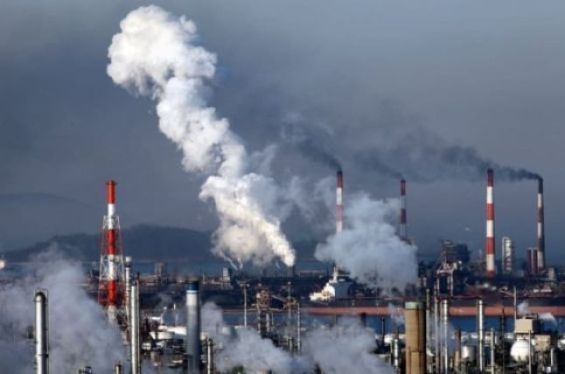A joint report by Greenpeace MENA and Greenpeace Africa, «Major Air Polluters in Africa Unmasked», reveals that air pollution exposure is a key driver of the high number of premature deaths recorded annually on the African continent.
The report provides shocking information on the continent's biggest air polluters and the public health crisis facing Africa's population, urging governments to take action.
The report further reveals that air pollution exposure is responsible for a significant number of premature deaths in Africa annually, with Egypt identified as one of the North African countries that shoulder a heavy health burden.
Coal plant in Morocco
Of the ten largest point sources of sulfur dioxide emissions identified in Africa, nine are thermal power plants and one is associated with a smelting complex in Mali. Four of the power plants are located in South Africa, two each in Morocco and Egypt, and one in Zimbabwe.
In terms of 2SO emissions in kilo-tonnes per year, the Jorf Lasfar coal power plant ranks sixth in Africa with 62.9 kilotons, followed by the Mohammedia coal and oil power plant with 49.8 kilotons, with South Africa monopolizing the top four positions, and Egypt's Shubra El-Kheima fossil gas power plant in fifth place, the report said.
Over the past year, two active sulfur dioxide hotspots in Morocco have shown a decline, the report said. The Safi power plant showed a significant decrease of 67% and the thermal power plant in Jorf Lasfar saw a 19% reduction in SO2 emissions compared to 2021 data, however, the Mohammedia coal power plant showed a 54% increase in SO2 emissions over the same period.
The report emphasized that according to the Air Quality Life Index assessment, permanently reducing 2.5PM concentrations from the 2021 level to the WHO guideline of 5 µg/m3 could improve the average life index by up to 1.3 years in Egypt, 0.4 years in Morocco, and less than 0.1 years in Algeria.
Greenpeace previously estimated that air pollution from the Safi plant could contribute to 88-30 premature deaths per year.
«We urgently urge North African governments to adopt the report's suggestions, particularly installing air quality monitors and ensuring real-time data is available», said Sarah Benabdallah, Greenpeace's Campaigns Officer. «This proactive approach empowers affected communities to demand action from their governments, take charge of their own wellbeing, make informed decisions and work collectively for cleaner and healthier environments».





 chargement...
chargement...













